Guest post by Martin Connor of Soundfly’s Flypaper
Here’s the thing about being the dominant musical genre in the world: you get so ingrained into mass culture that you simultaneously become indispensable and invisible — almost like air. You become so widespread that people barely notice when you show up now; you’re simply always there.
This happened to rock, then it happened to rap, and it will happen to whatever youth-embraced genre comes next. But social media platforms and the complete industry overhaul towards streaming have added a special twist to the usual story of musical ubiquity. Now, someone can be a rapper without even really releasing a song, much less a single, or, heavens forbid, an album.
And to me, this is really exciting. It is yet another example of how hip-hop has been able to innately adapt and creativity respond to whatever the world throws at it, which is, for many rappers, a fundamental tenet of the genre’s content as well.
- “People are tired of glamorous pop acts?” Fine, us rappers will show the ugly side of life in our lyrics.
- “The courts won’t let us producers sample music without paying insane fees?” Fine, we’ll release it for free and we’ll be our own labels from now on.
- “Rap has no melody — they don’t even write their own music!” Oh yeah, how about The Roots, Kendrick Lamar, Chance, Dre, J. Cole, Odd Future?
So, how can a rapper “rap” without releasing a song?
Cruise the social media pages of any rapper under the age of 21, and you will find no announcements of forthcoming tour dates, no photos of them gracing a recording studio vocal booth, no links to new singles dropped on Tidal. It’s just rap, in the purest and most unadorned way possible.
Take Deep South up-and-comer RichBoi Streeter, for example. In tweets like these, RBS takes rap off wax and puts it on Twitter. The cinematic emojis make up their own little music video as Streeter writes in alternating accented and unaccented syllables that clearly spell out the structure of a normal musical bar.
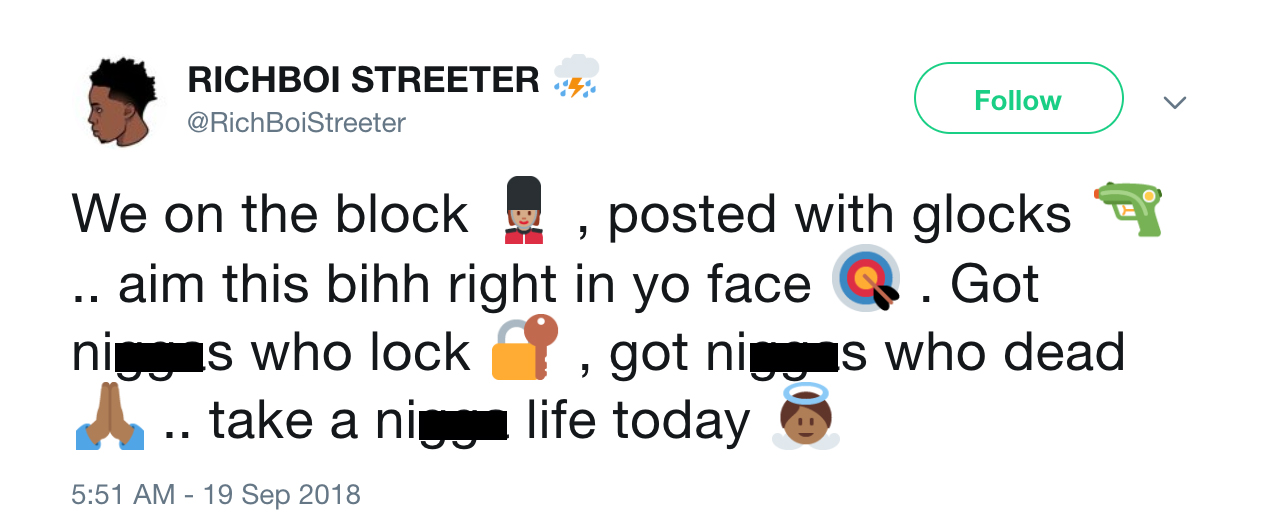
Lil Yachty, now newly 21 years old, raps on his Twitter all the time.
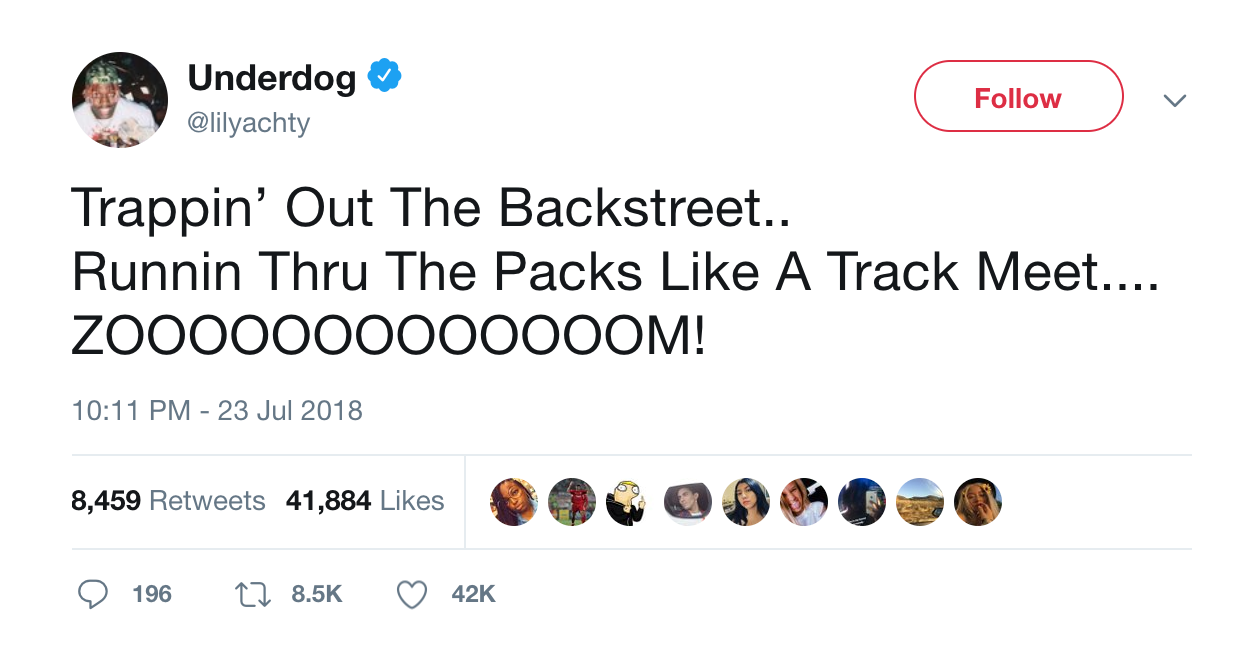
Here’s a quirky zinger by the newly 22-year-old rapper Ugly God.
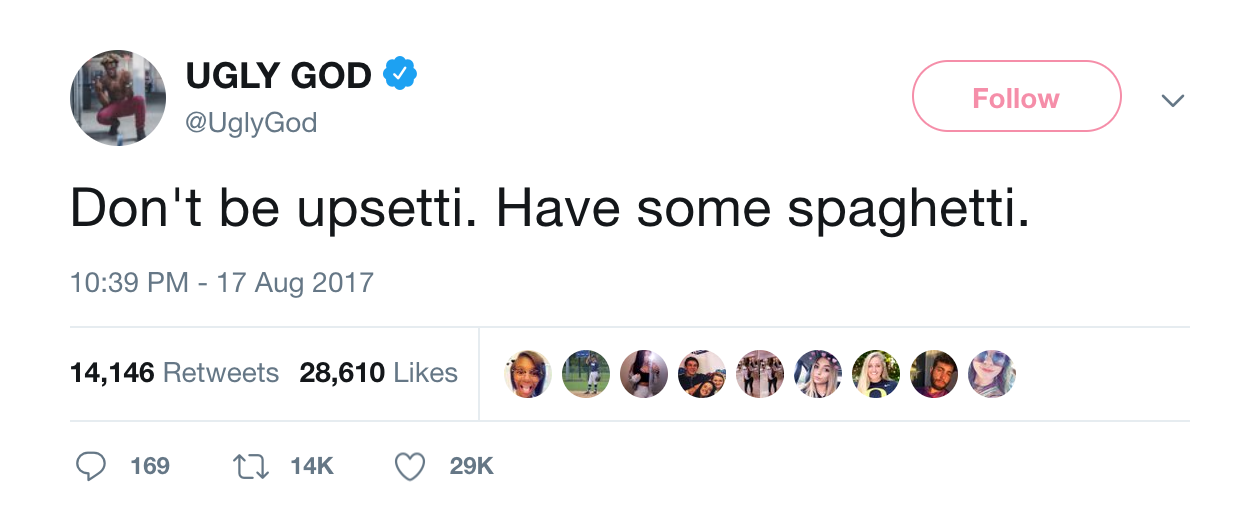
Social media is the vessel now; it’s gone beyond “streaming platforms” for some young rappers. Now, releasing music is more about putting it immediately in the ears of their fans, with no filter. Take 15-year-old rap phenom Bhad Bhabie. Her discography boasts no more than nine songs, three of them have somehow miraculously made it onto the Billboard charts, and her fans have memorized the lyrics to all of them. How is this possible?
Surely, Bhabie’s national viral fame was aided by an appearance on the Dr. Phil show, but she was bound for internet success no matter how you play it. Her maximization of fame from a minimum of recordings is a result of the generation of organic buzz traffic from social media with tweets like this.
Take a look at that video, and wonder: it’s someone else’s rap, with someone else’s beat, and she obviously lip syncs lyrics — and yet, there’s no plagiarism or rhyme-biting being thrown around here. But of course, she’s got serious chops when it comes to fan network validation tweets like this one.
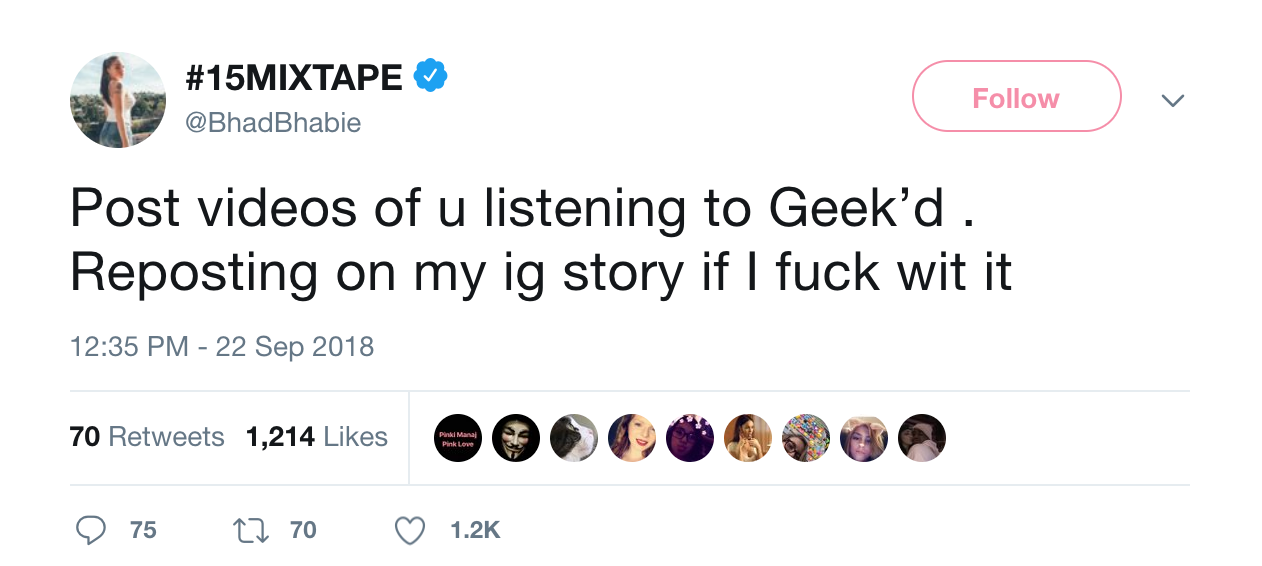
It’s the post-2000s iGen generation’s way of engaging in the celebrity, social-media conversation that pop music culture — that is to say, hip-hop — has become. And you could call this evidence that contemporary art-making is being overtaken by image, superficiality, or marketing… or you could look at it as yet another way hip-hop culture has sought to go back to its roots: that pure, unfiltered message delivered straight to the people with no middlemen. Twitter is the new Bronx street corner.
Is there actually a difference between either format’s artistic integrity if the work is good?
For young rappers of this generation, YouTube channels and Instagram stories are the new version of the seemingly antiquated “label demo.” Why keep these gems private and unheard? Share every tiny musical advancement with the world and bring your audience into your world every chance you get!
RichBoi Streeter’s Spotify page only has two songs, both of them are , and there’s definitely no physical release out to support them, but they haven’t gotten much love (less than 1,000 plays each). “Hang Around” is especially great — it would feel right at home in the playlist of any listener who enjoys other trappers like Future, Migos, or Gucci Mane. On RichBoi’s YouTube page, however, which only dons four home-produced tracks with no real “video” element, three of the tracks are up over 10,000 views.

When this young generation of rappers do end up “publishing” songs, they often can’t help but communicate on them like it’s still a social media post. When the Stoneman Douglas High School shooting happened in February 2018, rather than using 280 characters to share his thoughts, late rapper XXXTentacion created and put out a song almost immediately dedicated to the victims called “Hope.” By releasing it within just a couple days of the shooting’s occurrence, XXX managed to transport the immediacy and urgency of social media to his music, rather than the inverse.
XXXTentacion’s song “Hate Will Never Win” so frequently intersperses snippets of Donald Trump’s equivocating press conference after the violent 2017 event in Charlottesville, VA, that it sounds like a real-life “Twitter @me battle.”
Rappers who claim they’re not rappers, like Lil Yachty, are supposedly proof of rap’s empty value system. In reality, Lil Yachty and his insider-outsider brethren aren’t disrespecting the culture; they’re simply recognizing the reality of how the “music industry” reflects only a part of what hip-hop really is right now, and they’re trying to reclaim this nomenclature as greater than the reductionist view of “studio artists making songs and publishing them.”
This dynamic is also found in Childish Gambino’s proclamation that he doesn’t want to be a rapper; it’s in Kanye West’s assertion that people use the word as a slur against him; it’s in Blac Youngsta’s diss track against the old guards of hip-hop; it’s in Jake Paul becoming a YouTube superstar and then deciding to start his own record label like his idol Dr. Dre. And so these pronouncements are less a dissociation from rap, and more an aspirational expansion of what rap can and should be. Social media has thus helped to take rap back to the basics — nothing but “beats, rhymes, & life” (as A Tribe Called Quest put it back in 1996).
Hip-hop is really just a way of life. Full stop.
And it isn’t the most important genre in the world today simply because people somehow magically like rap more than, say, EDM. It’s storytelling in real time, every day, out on the street and buzzing in your pocket, not waiting two years for the record store shelves to fill back up. Hip-hop is the most popular genre in the world because it makes use of all available contemporary communication media to tell its stories, and it does that really, really well.
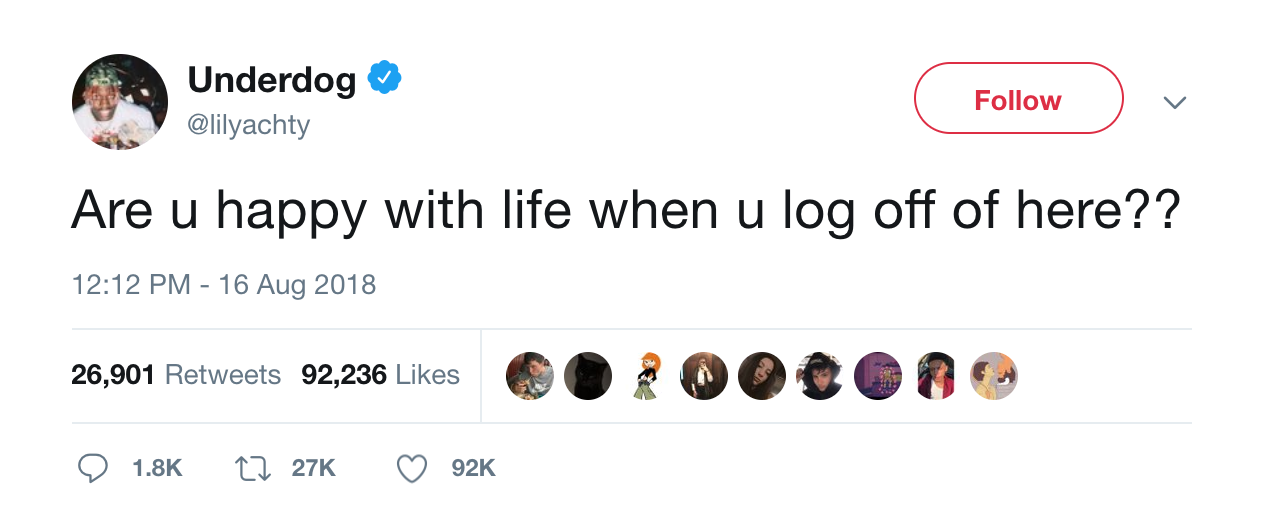

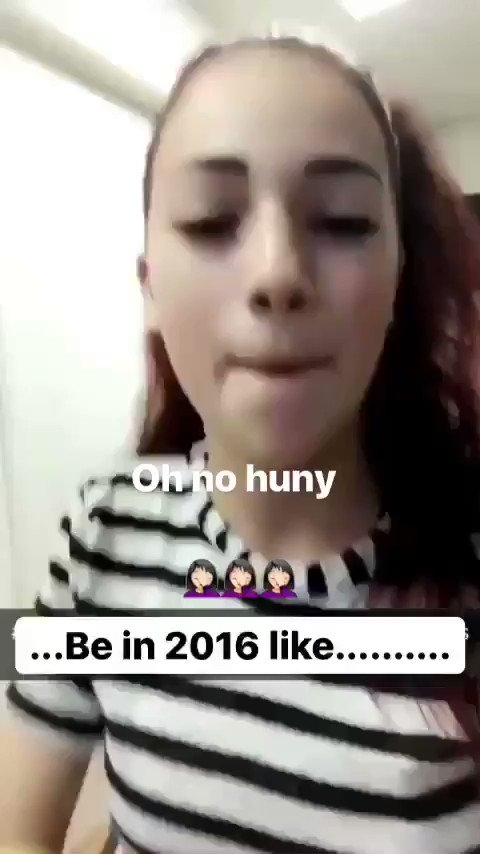

No comments:
Post a Comment